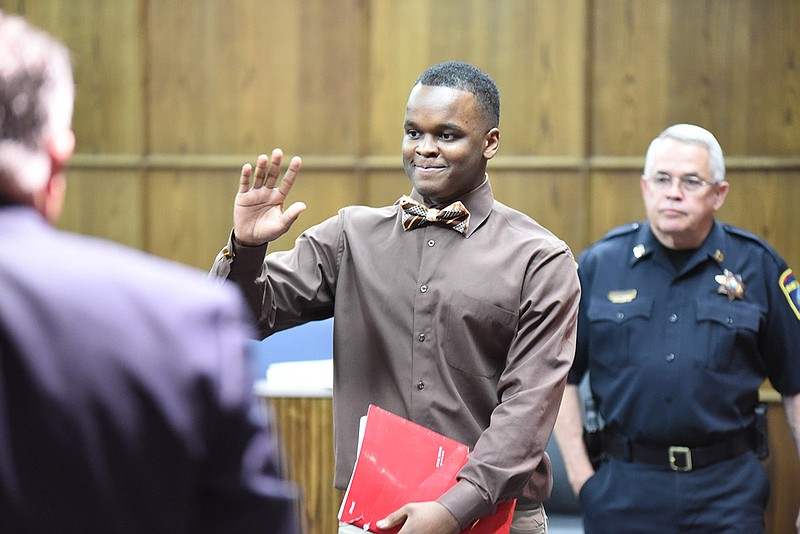Some defense attorneys say prosecutors shouldn't include any evidence from before 2012 in their 54-person gang racketeering case because it runs afoul of a critical legal protection.
Chattanooga attorney Michael Thomas said prosecutors recently gave him evidence alleging that his client, Quadarius Bowling, has been involved with the Athens Park Bloods street gang since 2011. Prosecutors say the Athens Park Bloods is responsible for multiple homicides, witness intimidations, robberies and drug deals, and they charged Bowling and 53 others with conspiring to further the gang's objectives in a mass presentment in March.
The problem, Thomas said in a motion filed July 27, is that gangs couldn't be prosecuted under the state's racketeering law until the Tennessee Legislature amended that law in 2012. Therefore, prosecutors shouldn't use any evidence before that time, Thomas said, otherwise they'll be violating the "Ex Post Facto" clause in the state constitution.
Generally speaking, "Ex Post Facto" means the state can't prosecute a person for something that, when done, wasn't illegal at the time. Another violation recognized by the Tennessee Supreme Court is when a law retroactively "aggravates a crime or makes it greater than when it was committed," Thomas wrote in his motion.
In this case, defense attorneys say prosecutors must show two prior crimes that each defendant committed as an extension of the alleged criminal enterprise (the Athens Park Bloods). So, for Bowling and other defendants, "Ex Post Facto" could come in handy if the state is relying on older evidence. Bowling, for instance, was convicted of theft, robbery and assault charges, all of which he committed before the 2012 change made it possible for him to be prosecuted as a gang member under the racketeering law.
Prosecutors did not return a request for comment Tuesday and haven't filed a response yet. Thomas declined to comment as well.
But in his motion, Thomas said a judge should either dismiss Bowling's two counts of racketeering enterprise or suppress certain pieces of evidence that either predate or could predate the 2012 law change.
In particular, Thomas homed in on the validation forms that Chattanooga police officers use to classify someone as a gang member. Officers assign points for being photographed with other gang members, wearing gang colors or flashing gang signs, or admitting you're a gang member. It only takes 10 points to be validated, and Chattanooga defense attorneys have previously argued the forms are based on hearsay and sometimes contain outdated or flat-out incorrect information.
Thomas said Chattanooga officers validated Bowling in 2013 "using information allegedly provided by the defendant in 2011" - before the law change. Another form from 2016 says Bowling admitted to "past" gang affiliation, but doesn't specify whether the affiliation happened before or after the law change, Thomas said. Same goes for any alleged gang tattoos, Thomas wrote, since officers don't say when Bowling got them.
In his motion, Thomas said this logic applies to other parts of the 22-page presentment that prosecutors used to secure their indictments. For example, he said, prosecutors mentioned a pair of arsons from 2008 and 2009. Those shouldn't be used as evidence, either, he wrote.
Hamilton County Criminal Court Judge Tom Greenholtz, who is overseeing the case, will have the final say on what evidence is allowed in. He has hearings scheduled on Sept. 24 and could hear Thomas' motion at an earlier date, too.
Since Thomas filed his motion, at least one other defense attorney, Josh Weiss, has joined the argument.
Weiss is representing Cortez Sims, who was convicted last year of a shooting rampage in College Hill Courts that injured three, including a toddler, and killed one. In addition to conspiring to help the gang, Sims is charged with shooting and killing a 14-year-old in 2014 in the racketeering case.
His attorneys filed a motion late last month saying that murder charge either needs to be dismissed or sent to Hamilton County Juvenile Court since Sims, now 21, was also a minor at the time of the alleged crime.
Contact staff writer Zack Peterson at zpeterson@timesfreepress.com or 423-757-6347. Follow him on Twitter @zackpeterson918.
